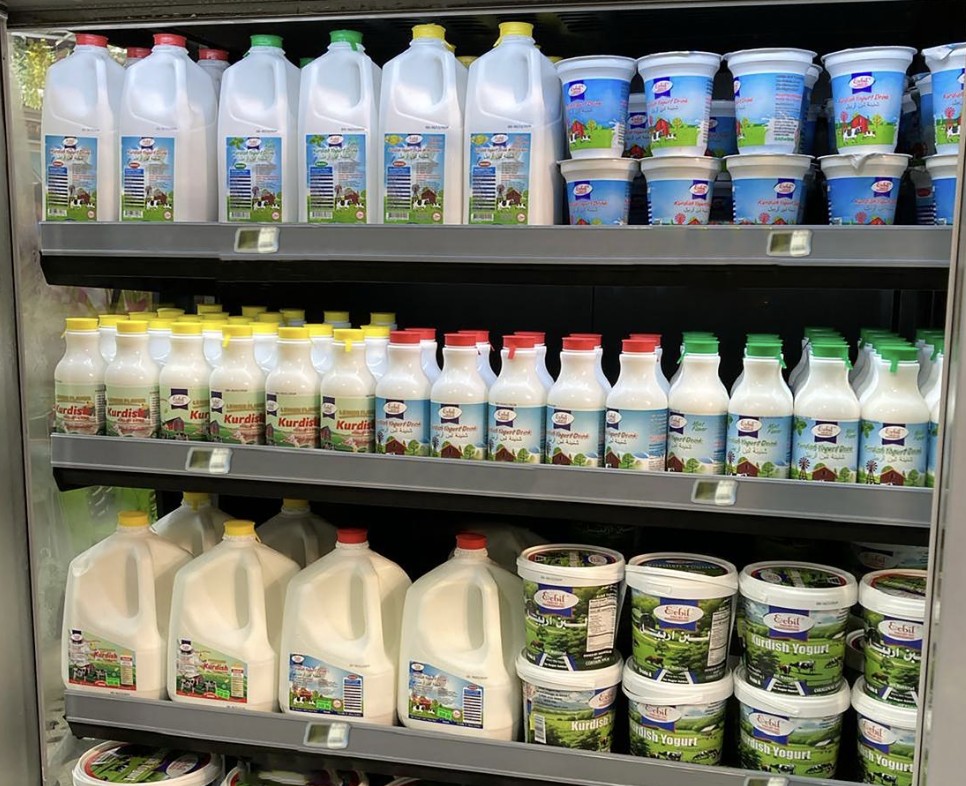As part of its dedication to economic reform and diversification, the Kurdistan Regional Government (KRG) of Iraq has begun to significantly export hanar, Kurdish for pomegranate, to regional and overseas markets, making it the largest non-oil export in recent history.
Hanar, a prominent agricultural product produced across the region, continues to be among the most delectable fruits and to garner increased demand.
“My cabinet has been taking constructive steps to diversify our economy, in a way that gives us a buffer against the uncertainty of global energy prices. This diversification - focused principally on agriculture, manufacturing and services sectors will be in addition to our energy sector -- not an alternative.”
PM Masrour Barzani, at the Atlantic Council Global Energy Forum
In December, the first batch of Kurdish pomegranates were shipped to the GCC countries, including the UAE.
Following Prime Minister Masrour Barzani's visit to the UAE in early 2022, the Kurdistan Agriculture Export Initiative (KAEI) was launched in March to market domestically grown pomegranates.
The initiative launched the KRG's progressive reform agenda, which centers on diversifying the economy and boosting the agriculture sector.
Pomegranate exports began after two firms were selected from Kurdistan's Zakho and Halabja areas and entrusted with procuring 2,000 tons from almost 100 farms scattered across the region.
To ensure that all exports met GCC and global standards, a quality-control provider was established, which also manages the logistics of door-to-door shipment from Kurdistan to the UAE and other GCC ports.
"The Prime Minister has listed agriculture a strategic priority in this cabinet. The message is clear: we’re determined to deliver domestic needs and transform Kurdistan into a regional food basket that meets the region’s food security needs and helps stabilise global supplies.’’
Aziz Ahmad, Deputy Chief of Staff to Prime Minister Masrour Barzani
Now that exports markets are available to our farmers, and a food corridor to the Gulf has been established, focus will turn to investment in the value chain.
Given their proximity, market need, and purchasing power for Kurdistan's local agriculture products, the six GCC countries were deemed the most viable export destinations.
Amad Abdulhamid Muhammad, Consul-General of Iraq in Dubai and the Northern Emirates, commended the initiative and expressed delight at the news after hearing about the KRG's efforts to promote domestically produced Kurdistan products to the UAE.
"There is strong cooperation between the Kurdistan Regional Government and the UAE in all fields and is a great desire to expand bilateral exports," Muhammad stressed.
He noted that Iraq and the Kurdistan Region can play a vital role in safeguarding regional food security in close collaboration with regional partners.
The exports are also another positive sign of the nation’s economic growth and a positive start for all of Iraq to thrive.
The consul-general also mentioned that the pomegranate is being showcased in international exhibitions in Dubai, which are scheduled to continue for the upcoming months.
According to Muhammad, the first batch of Kurdistan pomegranate is being sold in UAE market at an estimated price of USD $10-11 per kilogram.
"We look forward to greater collaboration and coordination between Iraq, the Kurdistan Region, and the UAE," he continued.
"Pomegranate exports are just the beginning of the export of other fruits, such as grapes and apples, as well as other products like honey."
The KRG has established the Export Promotion Bureau with the mission of promoting and eventually exporting the Kurdistan Region's diverse array of products, which serves as the backbone of the agriculture sector.
The region’s geographic location is known for its strength in farming and agriculture. Despite its mountainous terrain, it has considerably more arable land – around 28% of its total surface area – than most Middle Eastern countries.

